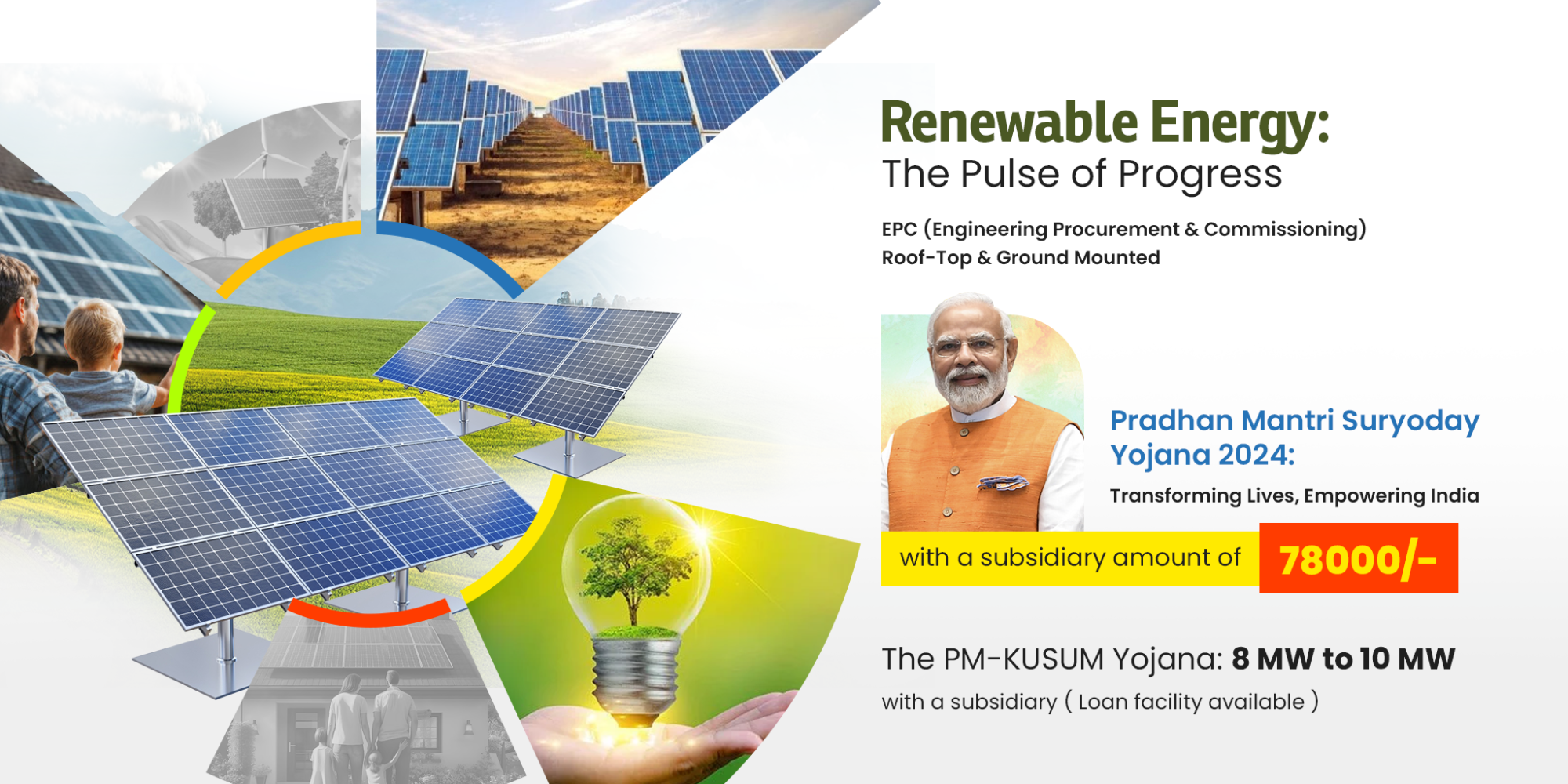Powering a Greener Future for All of India!
For a Sustainable Investment, Your Reliable Source.
The Doon Infra, a renowned business corporation, has been encouraging growth in all of its strategic projects, including its Transformer Manufacturing and Services businesses, since 2004 through a number of group firms.
The goal of Doon Infra is to provide everyone access to sustainable energy that doesn’t pollute. We firmly believe that every honest accountable person, as well as corporate organization, that endeavors to reduce their carbon footprint ought to have access to reasonably priced, superior, and high-performing renewable solutions.
There are 3 types of Solar distribution we provide:
1. Pradhan Mantri Suroday Yojana 2024: Transforming Lives, Empowering India
The Pradhanmantri Suroday Yojna 2024 is a flagship initiative by the Government of India aimed at uplifting the socio-economic status of underprivileged communities. Launched with a vision to ensure inclusive growth, the scheme focuses on providing financial assistance, healthcare, education, and employment opportunities to marginalized sections of society. By leveraging technology and innovative practices, Pradhanmantri Suroday Yojna 2024 aspires to create a self-reliant and equitable India where every citizen has the opportunity to thrive and contribute to the nation’s prosperity.
1. 3KW to 5KW with benefits of Subsidiary Rupees up to 78000/-
2. Commercial 10KWA to 100 KWA like Farms, Schools, Colleges, Hospitals, Restaurants Etc.
3. Industry Segment:- 100 KWA to 5 MWA
Saur Krishi Ajivika Yojna under PM-KUSUM Component C (Feeder Level Solarization)
The Saur Krishi Ajivika Yojna, part of the PM-KUSUM Component C initiative, focuses on feeder-level solarization to provide reliable and sustainable energy to agricultural sectors. This scheme aims to enhance farmers’ livelihoods by ensuring uninterrupted power supply for irrigation, reducing dependency on conventional power sources, and lowering electricity costs. By harnessing solar energy at the feeder level, the program promotes environmental sustainability and energy efficiency, empowering farmers with access to green energy solutions for their agricultural needs.
PM Kusum Yojana
The Pradhan Mantri Kisan Urja Suraksha evam Utthaan Mahabhiyan (PM-KUSUM) Yojana is a landmark initiative launched by the Government of India to promote solar energy among farmers. Introduced in 2019, this scheme aims to provide energy security, enhance farmer incomes, and contribute to India’s renewable energy targets. PM-KUSUM seeks to achieve these goals through the installation of solar pumps and grid-connected solar power plants in rural areas. Objectives Energy Security for Farmers: Reduce dependency on grid electricity and diesel for irrigation, thereby ensuring reliable and sustainable energy for agricultural activities. Income Augmentation: Enable farmers to generate additional income by selling surplus solar power to the grid. Environmental Sustainability: Promote clean energy, reduce carbon emissions, and mitigate the adverse effects of climate change. Rural Electrification: Enhance rural electrification and improve the livelihood of rural communities through access to solar power. Key Components
The PM-KUSUM Yojana comprises three main components:
Component-A: Installation of Decentralized Ground Mounted Grid Connected Renewable Power Plants Capacity: Up to 10,000 MW Details: Farmers, cooperatives, panchayats, and Farmer Producer Organizations (FPOs) can set up small solar plants (up to 2 MW) on barren or cultivable land. These plants will supply solar power directly to the grid. Benefits: Provides a stable income to farmers through the sale of solar power and enhances the grid’s renewable energy capacity.
Component-B: Installation of Standalone Solar Agriculture Pumps
Capacity: Up to 20 lakh standalone solar pumps
Details: Promotes the installation of off-grid solar pumps for irrigation purposes, particularly in areas where grid electricity is unavailable or unreliable.
Benefits: Reduces reliance on diesel pumps, lowers operational costs for farmers, and promotes sustainable agriculture.
Component-C: Solarisation of Existing Grid-connected Agriculture Pumps
Capacity: Solarisation of 15 lakh grid-connected pumps
Details: Existing grid-connected agriculture pumps will be solarized, enabling farmers to use solar power for irrigation and export excess power to the grid.
Benefits: Reduces electricity costs for farmers, provides an additional income stream, and improves grid stability by integrating decentralized solar power.
Download PDF for more details click here
